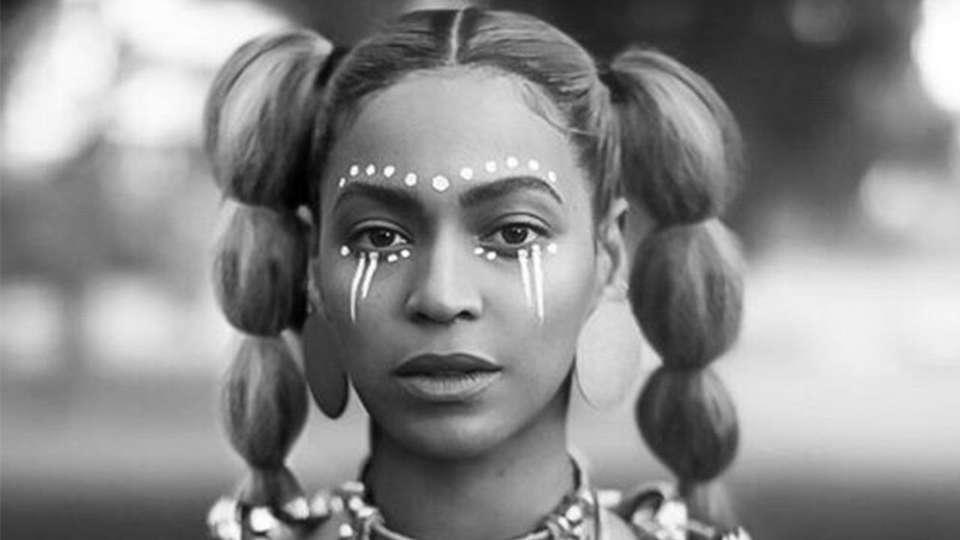
I have never, even in the days when I listened to music religiously, been a fan of Beyoncé. I recognized she was extremely talented, watched her videos and bought one of her albums. But nothing about her, her message or lack thereof, caused me to be deeply invested. But the Beyoncé that seems to be forming today is not the Beyoncé of the past. With my loss of interest in music in general and my lack of interest in her as an artist, it’s been years since I listened to a Beyoncé song, until Formation. From Jordan I still keep up with the news to some degree, when I heard of Beyoncé’s allegedly pro- back anti-police song causing a stir, I took a listen. Besides a few nods to pro-blackness –like loving her baby’s hair with “baby hair and afro” and liking her “negro nose” I found the song overwhelmingly vulgar. Then I watched the video and saw images from her Super Bowl performance. They were beyond pro-black, they were dangerously black. Many black activists and activist groups have been whitewashed to the point where they have become caricature teddy bear images of themselves –Martin Luther King and Harriet Tubman; for example, one man who has never been fully whitewashed (though some in the Muslim community make their most earnest attempt) is Malcolm X. The same can be said for the activist group, The Black Panthers. Their very names strike fear into the mainstream. To black people they are heroes, to mainstream America they are monsters –Beyoncé celebrated both.
In her video, she continues her visual activism, with images of a young black boy dancing in front of police, her laying on top a drowning police car, a graffiti sign that says ‘stop shooting us’, whoa. These images, were she not already Queen B, could ruin one’s career immediately. And even the most successful black people with seemingly nothing to lose –Oprah, for example, stay very far away from ever speaking up for black people, blackness and black issues. While we don’t have a technical system in the U.S. where one can apply to be white after reaching a certain degree of wealth, it is implied. Wealthy black people are expected to keep their distance from their blackness. People who don’t understand racism (or pretend not to) think that if you’re wealthy you no longer are connected to or have to deal with the issues an everyday black person faces. I’m sure there is a degree of truth to this, as long as Beyoncé is recognized as Beyoncé when she goes, for example, shopping in a high-end store, no one will accuse her of shoplifting or assume she’s a thief. But is it really possible to truly disconnect one’s self from the struggles people who share your skin color, history, and ancestry face?
Some can, the ones we call ‘sell-outs’, pretend that racism isn’t really the issue, black people just need to spread more love –as Common suggested, or we just need to change our behavior –as Cosby suggested or maybe we just need to work harder –as Jamie Fox says. These people see their wealth and success as a result of their individual goodness and character and think that if other black people would just do the same they too can reach the promised land. Others recognize –while black people just like everyone else, are not perfect, we also have serious systematic issues that impede our ability to be collectively successful. Beyoncé –to my knowledge, has been silent and it’d be hard to guess until the release of Formation, where exactly she stands on any of these issues. Formation and the subsequent release of Lemonade suggest that she too sees the systemic racism perpetrated on black people. That she is choosing not to accept the idea that her distance from the everyday black experience must divorce her from the struggle of everyday black people, that is a big deal.
So while, as a Muslim woman, it is difficult to promote anything dripping with vulgarity, immorality, and lewdness, it is –as a black woman, impossible to not stand up and applaud a woman who does not have to care about black issues but chooses to. I get that it’s very tricky territory but I think that if you live in black skin, witness the historical and present-day black nightmare and the relative silence of far too many of our people who have an impact to at least lend their voice, you too would stand up and cheer.





Recent Comments